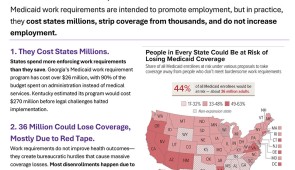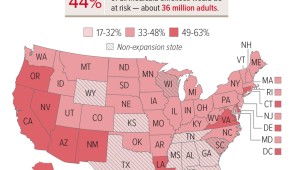'Medicaid work requirements create red tape and waste millions,' expert says
Health economist created one-page document explaining downsides of work requirements
- Expert says Medicaid work requirements:
- Cost states millions of dollars
- Could lead to 36 million people losing coverage, mostly due to paperwork issues
- Don’t increase employment
CHICAGO --- Northwestern University health economist and policy researcher Lindsay Allen is available to speak to media about ongoing discussions in Congress related to Medicaid work requirements, which she says are intended to promote employment, but in practice, cost states millions of dollars, strip coverage from thousands and do not increase employment.
“Medicaid work requirements don’t create jobs — they create red tape and waste millions in taxpayer dollars,” said Allen, assistant professor of emergency medicine at Northwestern University Feinberg School of Medicine. “Congress must reject policies that strip coverage from millions and focus on proven solutions like job training and Medicaid expansion.”
Allen said 44% of all Medicaid enrollees (about 36 million adults) could be at risk of losing coverage “under various proposals to take coverage away from people who don’t meet burdensome work requirements.”
Allen evaluates state policies’ effects on health care access, quality and outcomes with a focus on marginalized populations. She created this one-page document explaining three downsides of Medicaid work requirements.
Contact Kristin Samuelson to schedule an interview with Allen.

